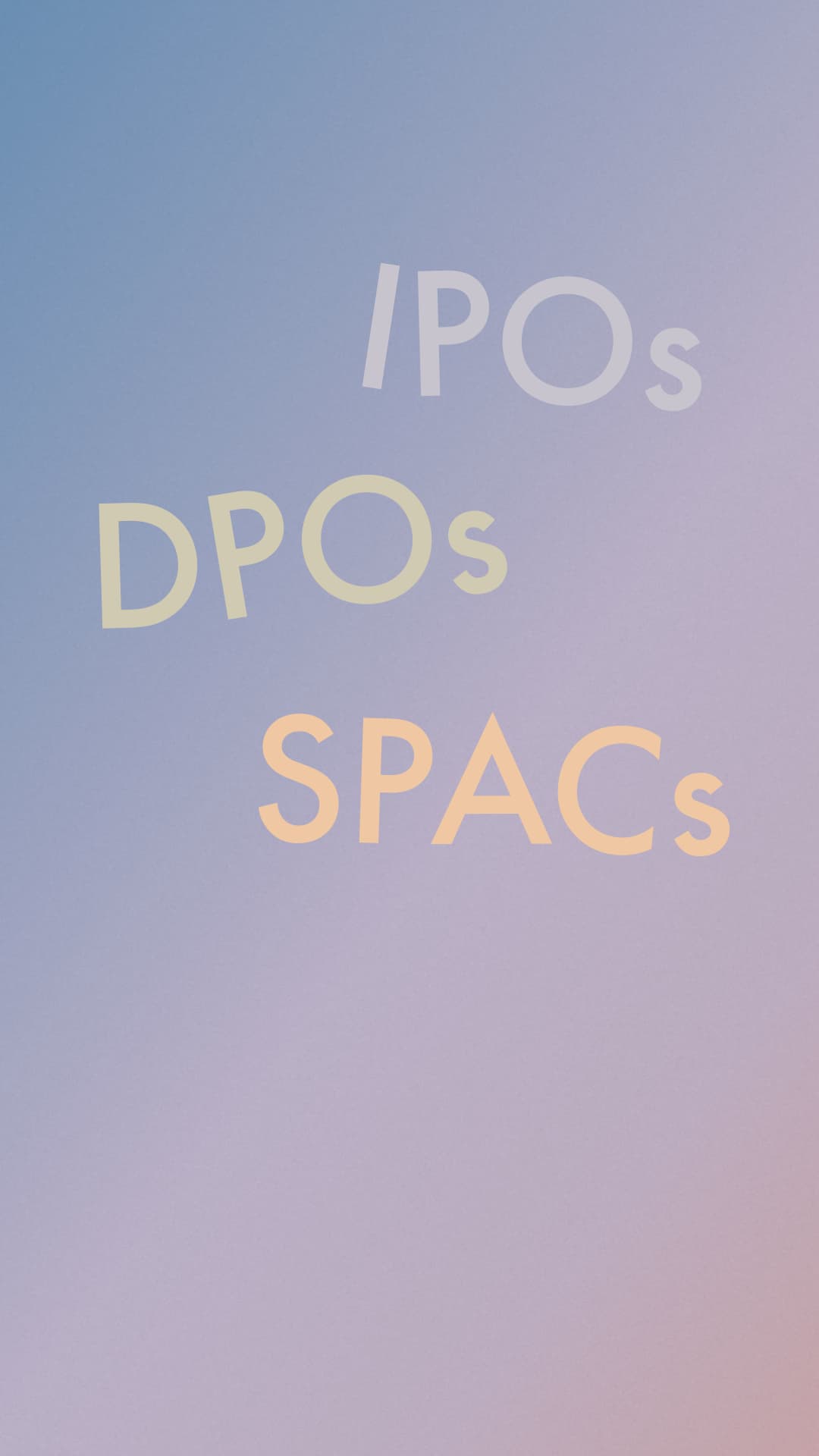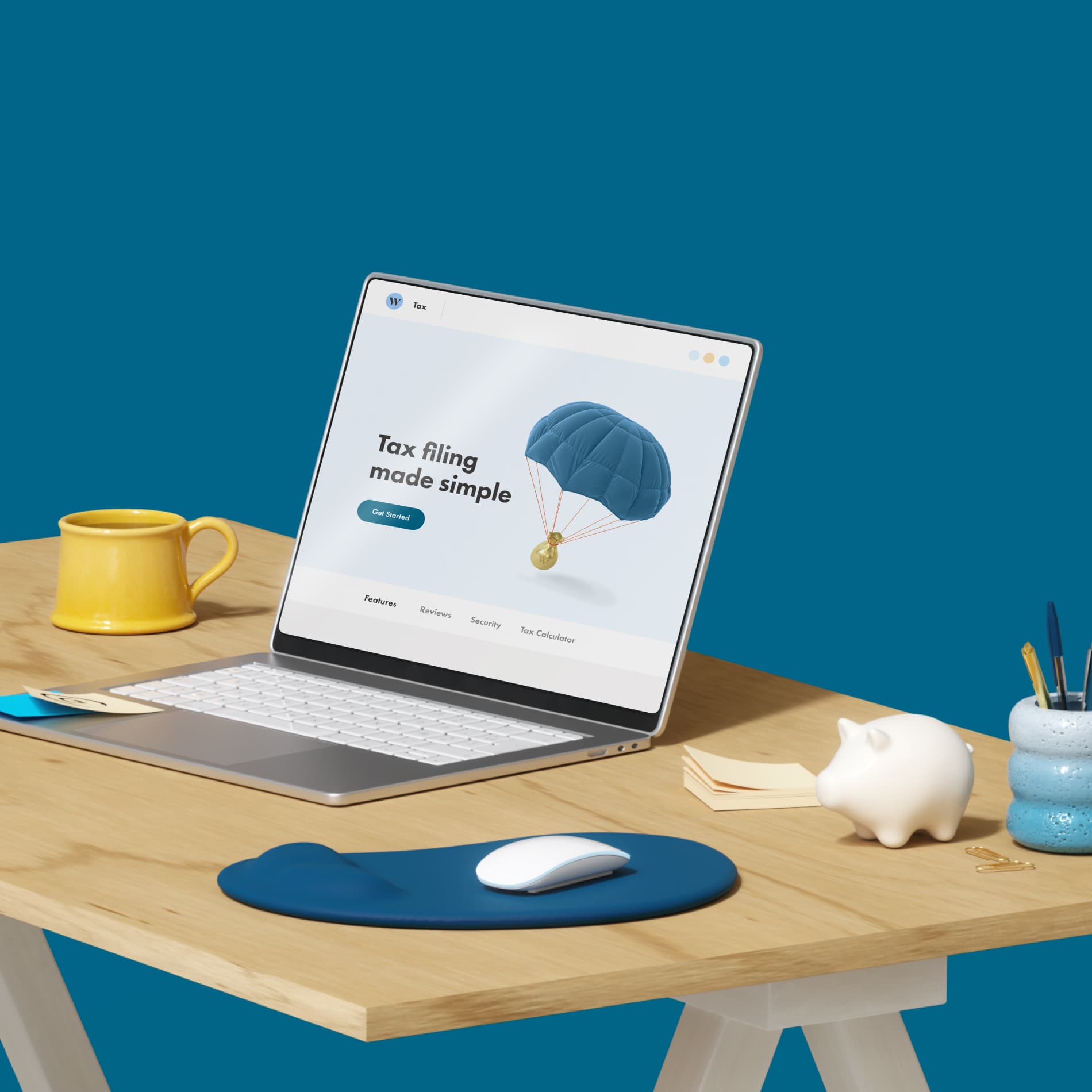
Finance for Humans
What You Really Need to Know About IPOs
The tidal wave of hype that comes with every initial public offering may spark your investing FOMO. But FOMO isn’t the best strategy. Here’s what you’ll want to understand before you jump in.
Wealthsimple makes powerful financial tools to help you grow and manage your money. Learn more
IPO hype seems to be everywhere.
When a company goes public — and there’s a lot of that going around these days — a whole lot of people (especially stock-buying novices) think it’s the time to hop on Wealthsimple Trade, hit buy, and strike it rich. Reader, we’re not in the business of that kind of speculation.
Wealthsimple’s mission is you “get rich slow,” not overnight. But the IPO (“initial public offering”) market over the past year has been completely bananas — scorching hot in 2020 and absolutely blistering so far in 2021. We get it: you’re curious. You’re wondering: what am I missing here, and how much will I hate myself later if I keep sitting on the sidelines?

Sign up for our weekly non-boring newsletter about money, markets, and more.
By providing your email, you are consenting to receive communications from Wealthsimple Media Inc. Visit our Privacy Policy for more info, or contact us at privacy@wealthsimple.com or 80 Spadina Ave., Toronto, ON.
But before you jump in and commit the personal finance equivalent of heading to the casino after spending all night at the club, you should probably understand the mechanics and psychology behind these events. Ben Reeves, Wealthsimple’s Chief Investment Officer, walks you through it, in the form of a bunch of questions an intelligent investor (like you) would naturally wonder (we hope) before hitting “buy.”
So, what does it even mean when a company “goes public”?
That’s when a company transitions from private ownership — usually by its founders, financial backers and, often in the tech industry, its employees — to “public” ownership, where anyone with a brokerage account and sufficient funds can purchase shares in the company and participate in its success (or failure). When a company IPOs, shares in the company (aka its stock) are made available to trade on public exchanges, such as the Toronto Stock Exchange (TSX) or the NASDAQ.
Are IPOs typically a good investment opportunity for regular people? Or is the system rigged to favour the biggest players? In other words, how should I think about IPOs as a piece of my own investment strategy?
We know this isn’t the tidy answer you’re looking for, but… it depends. Every IPO is its own story, its own set of risks, its own opportunity to win or lose. That said, if we take the very long view, returns from IPOs have tended to trail those of the broader market. It’s also true that some of the largest companies in the world have IPO’d in the past 25 years, and investors have done extremely well from investing in them. Which means that statistically speaking, most IPOs haven’t performed as well as the broader market, but some have spectacularly outperformed the market. (Historical data, we should note, is just that: historical. Not predictive.)
Shareholders, like institutional investors and wealthy individual investors, pay the lower “opening price” of an IPO. Unfortunately for the rest of us, that price will probably never be available again.
If you are an active, informed investor, and you think a company that’s going public is priced fairly and will beat its growth forecasts, investing can make a lot of sense. But a lot of people who jump in on IPOs are just reacting to hype, not information. A YOLO attitude is fine when visiting Vegas, less so when managing your portfolio. Just size your gamble so that if you’re wrong, it won’t compromise your broader strategy and savings goals. And as always, never invest more than you can afford to lose.
Why is the “opening price” I see in media coverage of an IPO almost always lower than the price I’m able to pay for a share?
The price published by the media is the price that the banks running the IPO set, using input from the company and its new shareholders. Those shareholders, the aforementioned institutional investors and sometimes a handful of very wealthy individual investors, pay that lower price. Unfortunately for the rest of us — “retail investors” in Wall Street parlance — that price will probably never be available again (unless the stock moves in the wrong direction after the IPO). Why? Because banks tend to underprice IPOs in order to goose demand among retail investors, pushing up the price by the time we non-insiders are able to purchase the stock. It usually takes some time to figure out the right price at which supply matches demand, which is why the first truly “public” (i.e. retail), trading opportunity for most IPOs happens several hours after the opening bell.
Why would a company go public anyway? What’s in it for them?
Money. Big surprise, right? Companies usually go public because they think the “public” investors (like you) who have little to no prior involvement with the company — will pay a higher price for shares in the company than private investors will. Funds raised in IPOs allow companies to invest in new products and services, and enable early investors and employees who’ve put sweat equity into the company in exchange for options to cash out some of their holdings. There are other advantages, too. For example, because IPOs tend to drive share prices higher, the company’s existing shareholders can generally give up a smaller percentage of ownership (and therefore control) in a public offering to many small investors than they would in a private sale to one or a handful of large ones.
A lot of people who jump in on IPOs are reacting to hype, not information. A YOLO attitude is fine when visiting Vegas, less so when managing your portfolio.
But there are trade-offs. When a company goes public, it has to disclose a ton of information about its business and results. Some of that information is stuff they’d probably prefer to keep to themselves, such as a particular division that’s performing particularly poorly. Even the good news can be burdensome to organize and prepare for the kind of scrutiny it will receive from Wall Street analysts and prospective investors.
I’ve heard a lot about companies like Slack and Roblox going public through a direct listing. How is that different from an IPO?
So, an IPO tends to involve the creation of new shares to be sold to the public. In a direct listing, no new shares are created. The stock gets listed on an exchange, but the only shares that are sold to the public are the existing shares owned by the company’s original founders, financial backers, and employees. Direct listings aren’t really about raising money from the public to fund expansion and growth. They’re all about benefiting existing investors and employees who want to sell their holdings.
Got it. And what’s the deal with SPACs? I can’t turn on CNBC without hearing about SPACs.
A Special Purpose Acquisition Company is an entity formed by a group of investors with the express purpose of buying other, existing companies. It’s a way for companies to raise money without going public. Investors in SPACs are pooling their money and trusting the SPAC manager to find a good company to buy at a discount. SPACs were extremely trendy throughout last year and into 2021 but have recently lost some of their luster, especially in the startup world, in part because an ever-growing number of SPACS are pursuing a limited number of potential acquisitions.
So how does an IPO actually, you know, work? What happens between a company deciding to go public and me seeing the ticker in my trading app?
First, the company discloses voluminous, highly detailed information about its past performance, risk factors, and business plans in a publicly available document called a prospectus. Then, it typically has a lot of intensive discussions with large investors — mostly institutions like banks, mutual funds, hedge funds, and pension funds — about the company to convince them that their stock is worth buying. Wall Street calls this the “roadshow.” Finally, the company determines the price of the stock, primarily based on feedback they received during their roadshow. Companies typically work with specialist investment banks and lawyers to help them navigate this process.
This article was last updated July 21, 2021.
Wealthsimple's education team is made up of writers and financial experts dedicated to making the world of finance easy to understand and not-at-all boring to read.









